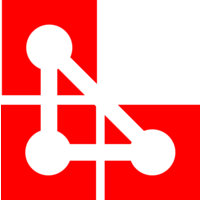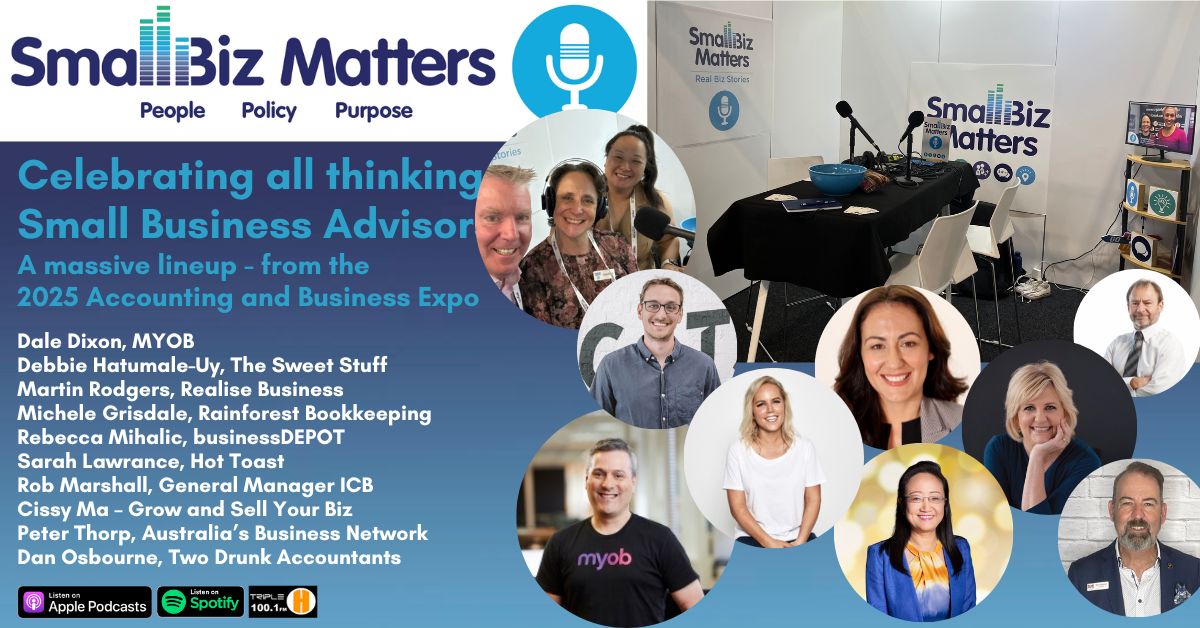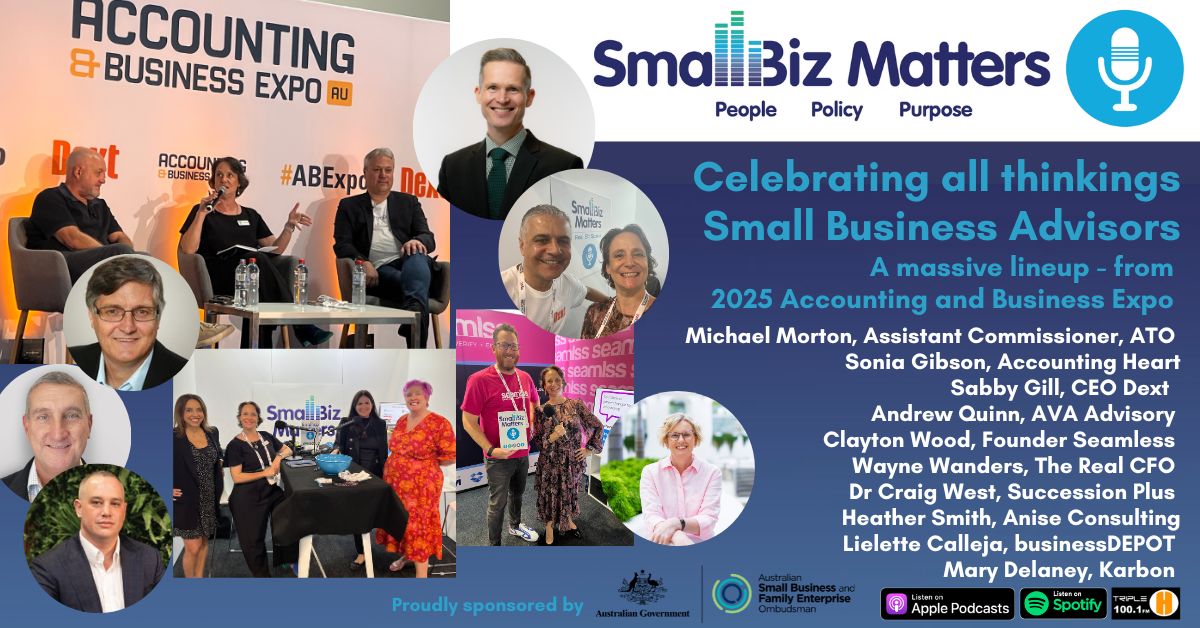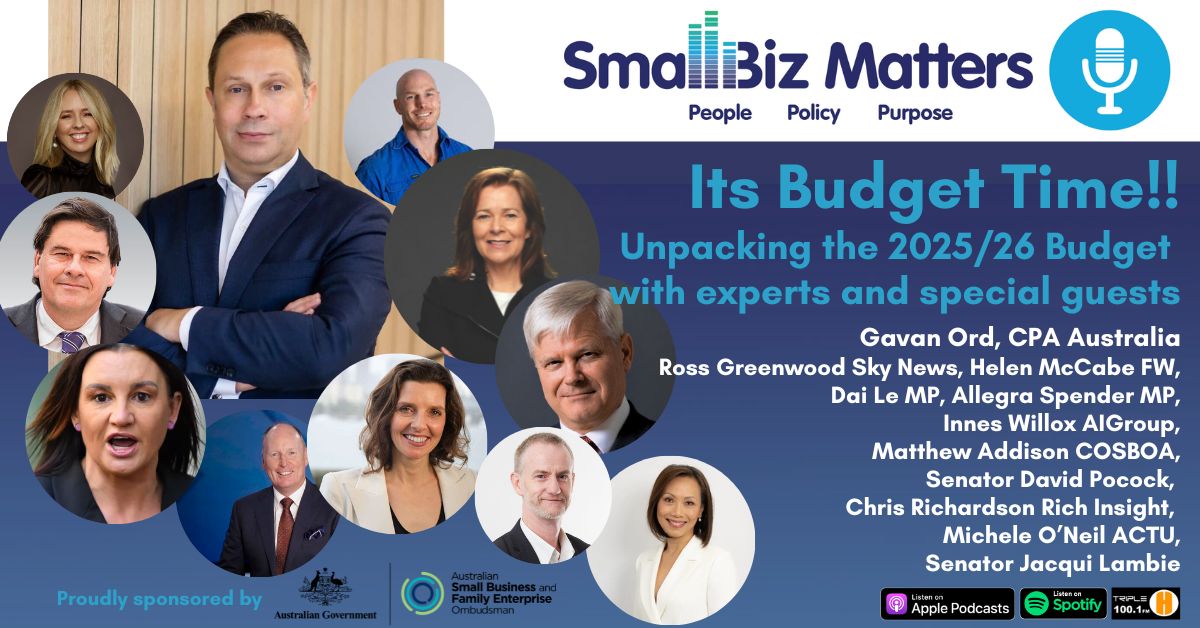Tackling the App Journey for your business - 10/7/2018
| Tuesday July 10Small Biz Matters – a half hour program each week where you can work ON your business rather than IN it.
with Alexi Boyd from Boyd Office Management Services
Date: 10 July 2018
It’s like a chicken before the egg scenario. Do you app research or do you just dive head-long into the technology that claims to make your life easier… without really knowing how it works. Do you trust the reviews, the testimonials and the company to do what it says it will or do you really try it out before investing too much time.
Selecting the app is the LAST thing you should do whereas The app is the not the asset, it’s your data which is crucial. SO a good start is, like everything, asking yourself what the journey is for both yourself and the client to assist. the Crap in, crap out.
Welcome to the show Matt.
Topics we’ll be covering:
How is small business affected by the "mobile first, cloud first" revolution
-
Brief history of business and productivity applications - system of record, system of process, system of decision, system of engagement (and very early stage: system of intelligence)
-
Where applications were very complex before, they are easy now. Having applications in the cloud is like having power from the grid - no need for an expensive and difficult to maintain power generator for the factory - same as the applications, just subscribe and plug in. This enables also mobile - which is allowing to do work no matter the location, no matter the device
Take the customer journey as the starting point for the selection of applications
-
There is an app for everything - especially in the marketing space we have seen an explosion of new applications on the market - one company identified over 4000 applications (and probably stopped counting). Customer Relationship management applications, accounting applications, there is no shortage. The typical buying process of small businesses start with the accounting - got to keep the ATO happy. Same as "all roads lead to Rome" -unless you are in Rome - all data flows to accounting, which makes it a less than ideal starting point of the selection process - and typically, additional applications get "bolted on" the business without thought of integration of process.
-
Example: you use a direct mail campaign application, Mail Chimp is good and used quite often. What happens when your customer unsubscribes. How is that reflected in your CRM system? When you next take an export of all customers for another campaign - how do you ensure that previously unsubscribed customers are excluded? And how do you see within your CRM the open, click and bounce rates?
-
Example 2: we all know the frustration when calling a support line from a large company - you explain the issue to the front-line agent, the agent cannot help you and transfers you - and you have to explain everything again...
The customer journey takes into account the desired road the customer travels to become and remain a customer at your business. How do you get your leads, how do the leads convert into customers, what are the touch points.
-
Example: let's take a gardener. Leads come in from: referrals, advertisement, as well as a flyer distribution in the area. it is important to measure the return of customers from these channels. Once a potential customer asks for a quote, the gardener visits the garden, takes stock of the work (maybe some photos), as well as capture additional details of the potential customer. Sending the quote of the work on email gives the most options - for instance, adding the photos to illustrate (the gardener now has the name, address, phone and email address of the potential customer).
-
When executing the work, all time and expenses are recorded in a mobile application, and again, photo's of progress are made. Once done, the gardener can send via the mobile phone, the invoice to the customer, which includes the labour, materials used, and potentially the photos. Because the invoice is immediately booked in the system (instead of a written invoice that needs to be processed separately), the gardener does not need to do any additional administration.
-
During the quiet periods, the gardener sends out an email campaign, with tips for maintaining the soil, and propose work that can be done.
-
As mentioned before, there is a vast number of applications available - when selecting applications, people tend to look at features and cost. The sales person tries to steer the conversation away from cost to "value"- value is important, but be careful if the vendor specifies the value for you. The actual value in applications is not in the features (we expect a minimum bar to be met) - it is how the application enables the data flow supporting the customer journey. Cost is also important - adding all these applications together adds up to cost - some applications are free to use - be careful - read the license model - what are you trading away for the free use? There are examples where you automatically share ownership of any intellectual property generated with the free use application. On the flipside, the more expensive an application is, the more difficult it is to get return on investment.
-
If allowed: plug - Aurelian Group works with small businesses to assess and map their customer journey, and provides access to an "all you can eat buffet" of 40 applications for as little as $45 per employee per month - discounted to $35 per month if paid annually. Just like a buffet and you don't like the shrimp, you pass it - if you do not need an application yet, you don't have to use it. However, the applications you do use are designed to work together.
Matt’s Bio:
Born in The Netherlands, arrived in Australia in 2006 (detour - Saudi Arabia, Bahrain, New Zealand)
25 years experience with Business applications (first application project: 16 week forecasting tool for a liquor distillery in The Netherlands - June 1993) - implemented small to (very) large application projects
From 2006 to 2017 worked at Microsoft, ended up managing the Dynamics 365 ERP implementation team at Microsoft, dealing with the largest customers across Asia
Now - with Aurelian Group, Matt is 100% focused on small business, enabling their customer journeys with simple to use integrated applications.
Key takeaways
The key take-aways for small business owners I would like to get across are:
- applications are not an asset, your process - how the data flows within your business to provide your customers a great experience is your asset - applications enable (or disrupt) this flow
- when selecting business applications, one should start with the customer journey you want to provide to your customers in your business - then select applications on how they facilitate that journey
- an integrated flow is more valuable than having the most feature rich applications - when data does not flow between applications, your customer experience during the journey is far from optimal (usually a poor experience).
To find out more go to their website: www.aurelian-group.com or www.unboxedbusiness.com





